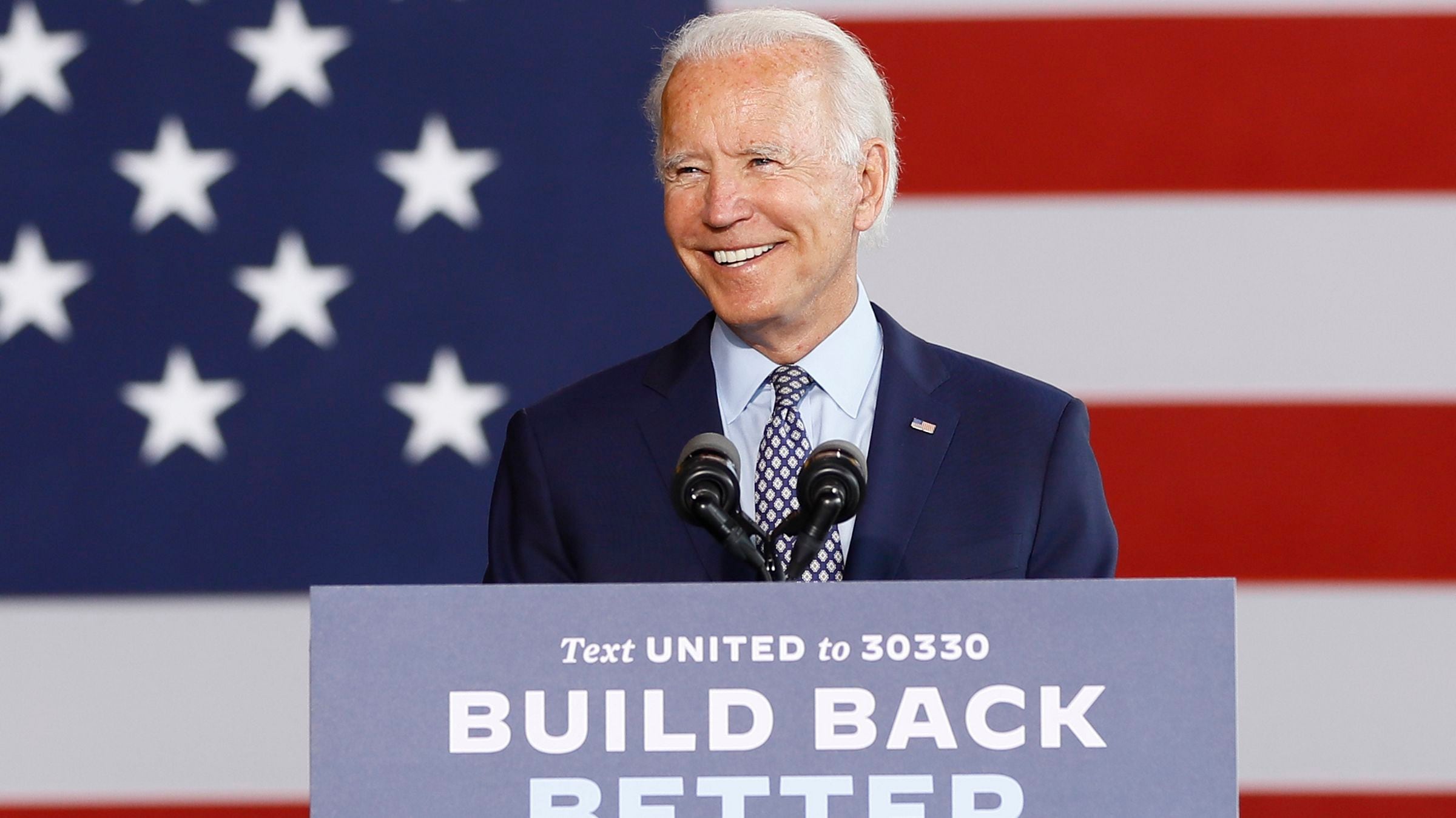By Alexandra Jaffe, Ellen Knickmeyer, and Will Weissert
Joe Biden released a plan Tuesday aimed at combating climate change and spurring economic growth in part by overhauling America's energy industry, with a proposal to achieve entirely carbon pollution-free power by 2035.
The presumptive Democratic presidential nominee will discuss the proposal later Tuesday near his home in Wilmington, Delaware. It marks his latest effort to build out a legislative agenda with measures that could animate progressives who may be skeptical of Biden, who waged a more centrist campaign during the Democratic primary.
The plan reflects ideas embraced by some of Biden's more progressive allies during the primary, like Jay Inslee, whose campaign centered on the issue of climate change. The Washington governor first proposed achieving entirely carbon-free electricity by 2035. But it doesn't go as far as the Green New Deal, the sweeping proposal from progressives in Congress that calls for achieving net-zero greenhouse gas emissions across the economy by 2030.
Biden's plan does align with a climate bill spearheaded by House Speaker Nancy Pelosi in reducing emissions to zero by 2050, however. And it goes farther than that bill on achieving a carbon-neutral power sector. House Democrats' proposal sets a 2040 deadline for that goal, while Biden's aims to achieve it five years faster.
In the plan, Biden pledges to spend $2 trillion over four years to promote his energy proposals, a significant acceleration of the $1.7 trillion over 10 years he proposed spending in his climate plan during the primary.
The proposal doesn't include specifics on how it would be paid for. Senior campaign officials who requested anonymity to discuss strategy said it would require a mix of tax increases on corporations and the wealthy and deficit spending aimed at stimulating the economy.
Unlike several of his Democratic rivals in the primary, Biden makes no mention of banning dirtier-burning coal or prohibiting fracking, a method of extracting oil and gas that triggered a natural gas boom in the United States over the last decade. The issue is politically sensitive in some key battleground states such as Pennsylvania, and during the primary Biden limited his opposition to new fracking permits.
Biden's new plan instead describes an easing out of burning of oil and gas and coal, through more efficient vehicles and public transport and buildings and power plants.
Instead of an all-out ban on climate-damaging fossil fuels, he talks about carbon capture technologies to catch coal and petroleum pollution from power plant smokestacks. Biden also embraces nuclear power, unlike some other Democratic opponents earlier. He calls for pumping up research on still-developing power technologies like hydrogen power and grid-size storage to stash power from solar and wind, overcoming a key drawback of those carbon-free energy sources now.
Earlier Democratic rivals found themselves targeted by ad campaigns from the petroleum industry after calling for aggressive ramp downs of fossil fuel use. Biden avoids even mentioning fossil fuels in his plan, referring simply to "clean energy" from alternate or cleaned-up sources.
The plan places a heavy emphasis on updating America's infrastructure and includes investments in improving energy efficiency in buildings and housing as well as promoting the production of electric vehicles and conservation efforts in the agriculture industry.
It also includes a portion focused on environmental justice, including a requirement that 40 percent of the money he wants to spend on clean energy deployment, reduction of legacy pollution, and other investments will go to historically disadvantaged communities.
Trump campaign surrogates on Tuesday described Biden's energy plan as a waste of taxpayer money and sought to compare it to the Obama administration's clean energy loan guarantee program created as part of the 2009 stimulus effort to bolster an economy reeling from the Great Recession.
Some companies that benefited from that program, including solar panel manufacturer Solyndra which won a $528 million taxpayer-backed loan guarantee, collapsed after receiving federal subsidies.
"That is Solyndra on steroids," said Republican House Minority Whip Steve Scalise, in a call with reporters organized by the Trump campaign about the Biden energy plan. "Joe Biden has been here before, you can see his track record."
On a Monday evening fundraising call with renewable energy executives, Biden pledged to make an irreversible impact on the nation's efforts to combat climate change.
"God willing I win and even if I serve eight years, I want to make sure we put down such a marker that it's impossible for the next president to turn it around," he said.
Senior campaign officials said Tuesday morning that the plan includes planks that could be achieved by executive action and others that would require legislation. The officials, who requested anonymity to discuss the campaign's thinking, said many of the energy measures would be included in the first stimulus package Biden plans to bring to Congress.
It would likely face steep opposition from elected Republicans. Democrats need to pick up at least three seats to take back the Senate, and Biden has pledged to campaign hard to help Democrats win back control.
But he argued during his Monday evening fundraiser that the current "historic set of crises — a pandemic, an economic crisis, and systemic racism" would make it "easier" to pass major reforms like his climate plan.
Climate change, Biden said, "is the existential threat to humanity, and it is real. It is real. And it is urgent, and the public is becoming aware of it. And it may be the very answer to get us out of this economic situation we're in."
___
Associated Press writer Aamer Madhani contributed to this report.









